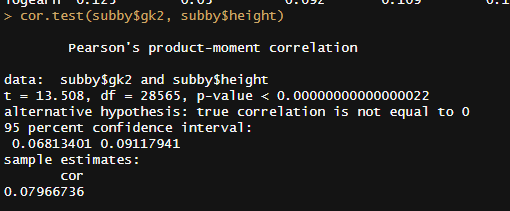What ability best measures intelligence?
verbal ability > mathematical ability > > > spatial ability
When assembeled into a test battery, the degree to which each test measures the general intelligence factor (g) is calculated using factor analysis. Effectively, this method ranks each subtest according to how well it predicts the other subtests in the battery. The inferred correlation each subtest has with the g factor is called a g loading.
After sifting through the literature and analysing data I had on my PC, I was able to find 18 different sources which factor-analysed a total of 427,596 individuals. A the minimum, the batteries had to have 6 different subtests, 100 individuals tested, and employ a univariate method of factor analysis. I then grouped all of the subtests into umbrellas such as reading
Early on in the analysis process, I noticed that some batteries had systematically higher g-loadings than others independent of the abilities they were testing, so I used a meta-analytic mixed-effects model to control for the effect of year at testing1 and the specific battery the test was in (e.g. WAIS IV, ASVAB). These were the results:
Overall, mathematical and verbal abilities were the most g-loaded and measures of memory and processing speed were the least g-loaded. Specialised knowledge and abilities are less correlated with general ability, which must be true by definition. I should note that most of the “general math” tests are g-loaded because they test more basic mathematical skills like arithmetic, not because they test integrals and linear algebra.
Adjusting for bias in the estimation of g-loadings
These g-loading estimates are biased by reliability and validity of the tests; fluid tests of intelligence tend to be more unreliable than crystalised ones, so comparing them without administering this correction is not fair. Then there is the issue that there is no accepted definition for what intelligence even is; if we go by my definition (process which extracts information from information according to a set of goals and values) then fluid g is intelligence and crystalized g is just information.
As such, I do not intend to systemtically compare all methods of measuring intelligence in a fair way. What interests me is comparing verbal and mathematical ability, which are roughly comparable in g-loading according to the meta-analysis but a definitive answer could be reached using the largest source of data — the Project Talent (PT).
There were three math tests and 9 verbal tests in the PT battery. To make the comparison fair, I took the 3 best measurements of verbal ability (punctuation, reading comprehension, and knowledge of the function of words in sentences), which lead to a math and verbal test were equivalent in terms of reliability2 and length. I also subsetted the sample to 14-18 year old white men.
Then I grouped up the other subtests into subfactors (general knowledge, memory, processing speed, verbal ability, mathematical ability, and visualspatial ability) and factor analysed them all:

Verbal ability superseded math in terms of g-loading, despite its equivalent reliability.
I also tried a different method where the g-loadings of math and verbal ability were compared by inferring that the more valid test was the more g-loaded one. I gave up on the idea after noticing that sometimes variables were not related to cognition in terms of their g-loadings. For example, height was disproportionately associated with general knowledge and visual-spatial ability.
The precision of the estimates of these correlations is very high, the standard errors of them are roughly .0053 due to the sample size (68,000). Just for rigour, I tested my observation using regression and I found that memory predicted lower height (?) independent of general knowledge and g:
Pretty odd finding. It’s probably not due to demographic confounding as these are all white teenage boys born within 5 years of each other on the same year. My guess is that there is a tradeoff effect at play where the brain is designed to be a certain size, so making it larger comes with higher intelligence but worse performance in certain areas beyond that.











Awesome. This fits with my God as wordcel theory: https://pifferpilfer.substack.com/p/llms-a-triumph-and-a-curse-for-wordcels
💪💪💪